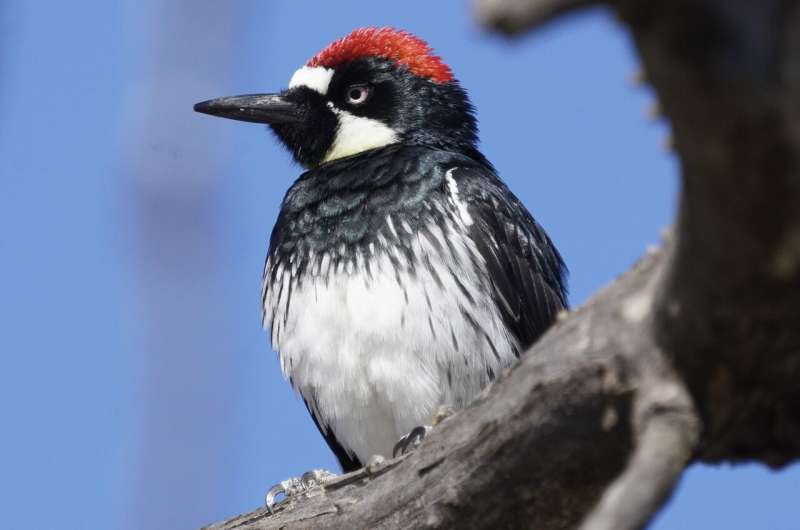This article has been reviewed according to Science X's editorial process and policies. Editors have highlighted the following attributes while ensuring the content's credibility:
fact-checked
peer-reviewed publication
trusted source
proofread
Wildlife smoke may curb movement, sociability of woodpeckers

Human-driven climate change has helped transform many forests into kindling: A 2016 study found that greenhouse-aided warming and drought had more than doubled the area of fire-susceptible forest in the western U.S. since the mid-1980s. And of the California wildfires recorded since the 1930s, the seven largest by area have all occurred since 2018.
Much of that wildfire-inflicted harm is framed around people, often in terms of displacing human residents or destroying their settlements. But wildlife bears the brunt, too. The wildfires that ravaged Australia from mid-2020 through early 2021, for instance, killed or displaced an estimated 3 billion-plus animals.
In an effort to document the less obvious effects of wildfire, Nebraska's Allison Johnson, Daizaburo Shizuka and colleagues looked to the acorn woodpecker, a species that inhabits western North America.
Unlike most species, acorn woodpeckers practice cooperative breeding, whereby juveniles or adults without mates will stick around to help care for young until they find breeding opportunities of their own. That search often includes daily forays into neighboring territories.
Wondering whether the smoke from wildfires might influence those forays, the team tracked 37 radio-tagged acorn woodpeckers living in California's Hastings Natural History Reservation. In summer 2020, two nearby wildfires produced smoke plumes that satellite imagery helped classify into one of three categories: thin, medium and thick. The team proceeded to analyze the locations and movement of those 37 specimens before, during and after the fires.
On days marked by medium or thick smoke, the acorn woodpeckers spent more time in their home territory and less time visiting others, especially those relatively far from their own. The woodpeckers were also less likely to be found in close proximity, suggesting that the smoke cost them opportunities to interact and coordinate their movements even during the forays they did make.
The findings, published in Current Biology, indicate that where there's smoke, even in lieu of fire, wildlife may be forced to adapt their behavior in detrimental ways, the team said.
Though the study established a clear link between the presence of smoke and behavioral changes, further research could clarify how much those changes depend on the severity of smoke—an increasingly relevant concern amid intensifying wildfires.
More information: Allison E. Johnson et al, Acorn woodpecker movements and social networks change with wildfire smoke, Current Biology (2023). DOI: 10.1016/j.cub.2023.08.096
Journal information: Current Biology
Provided by University of Nebraska-Lincoln


















